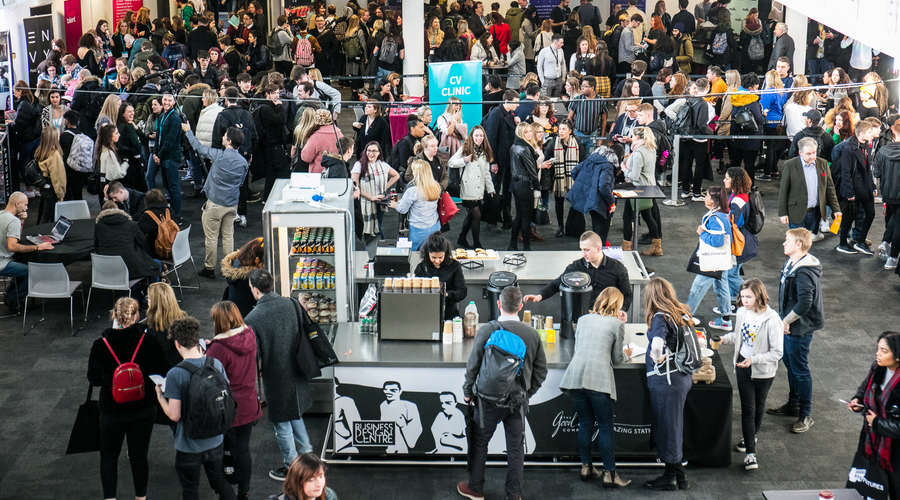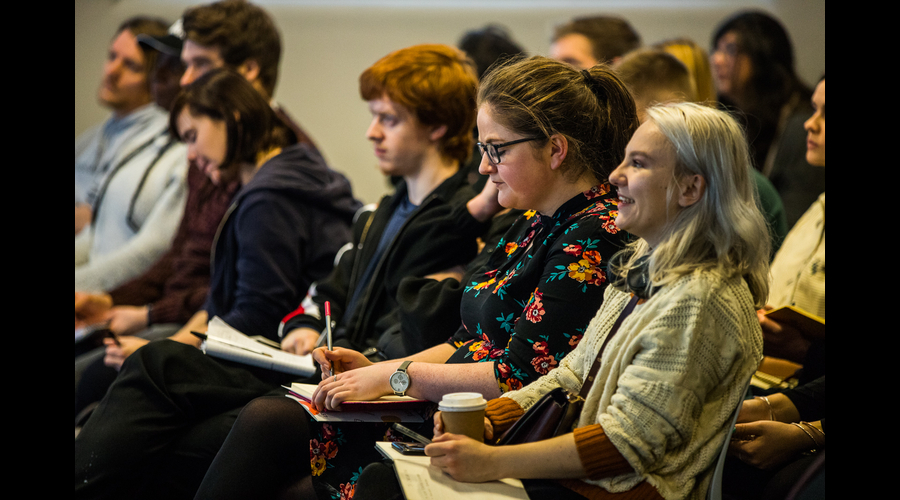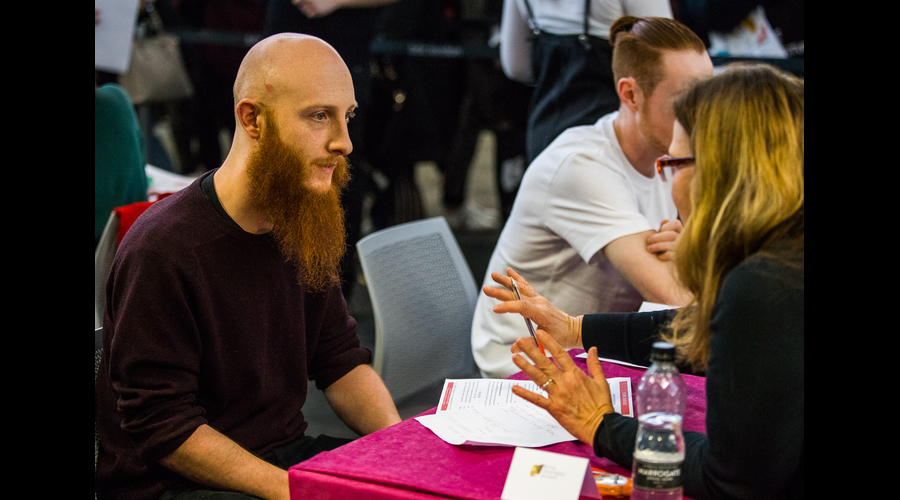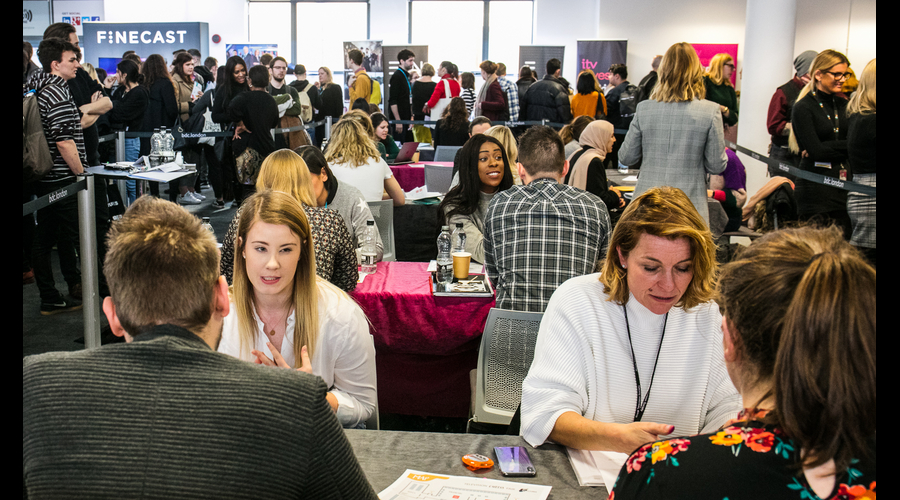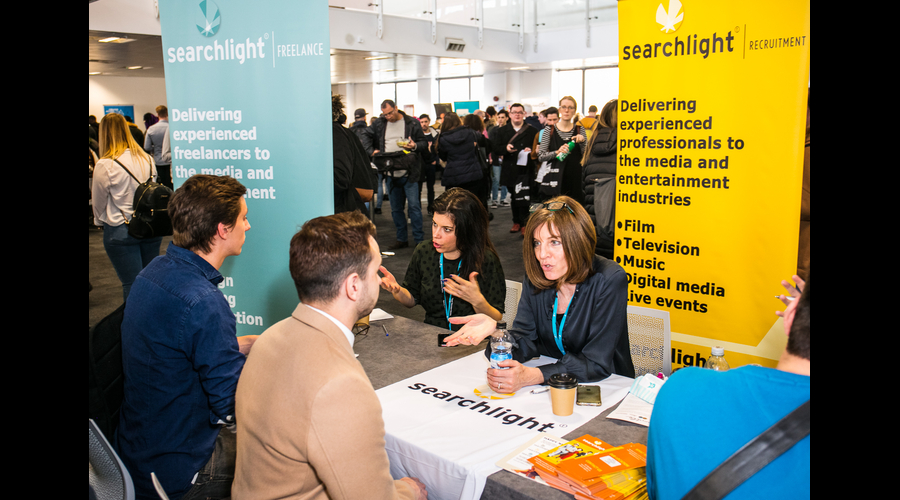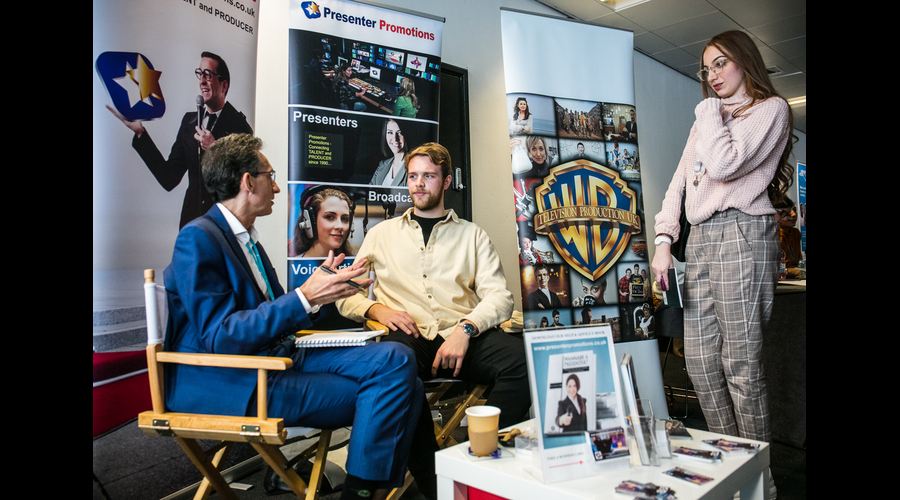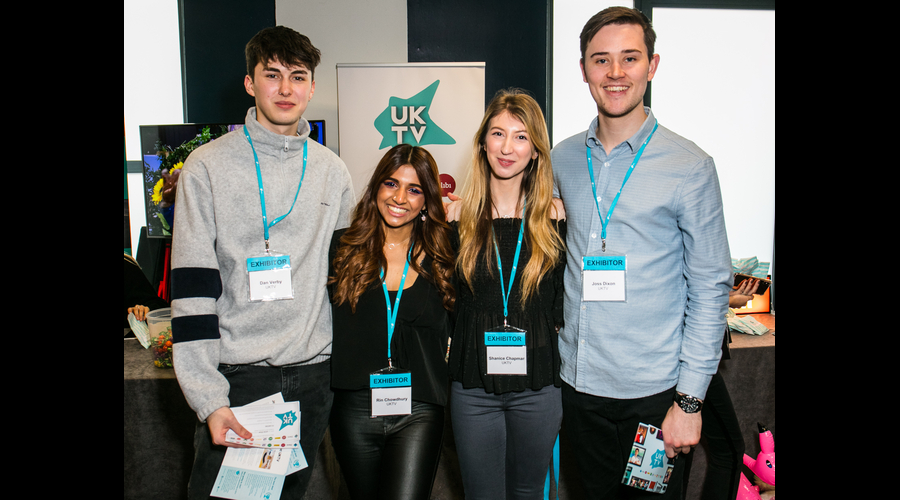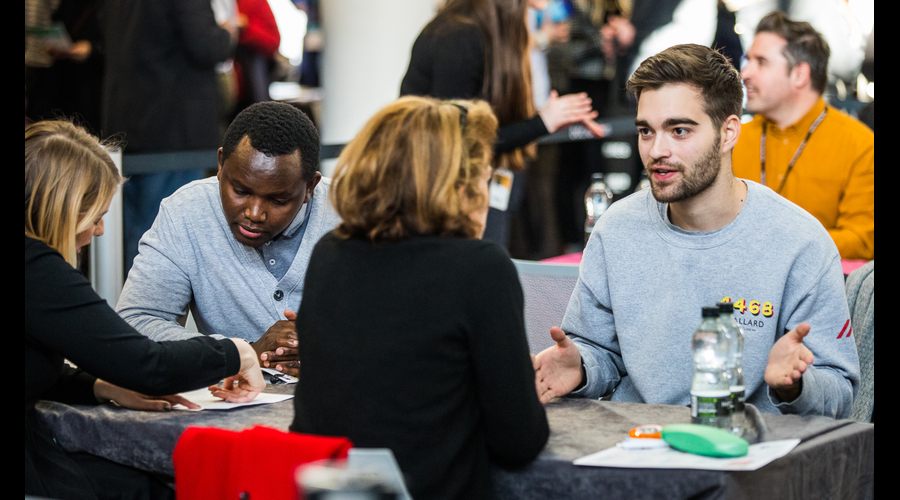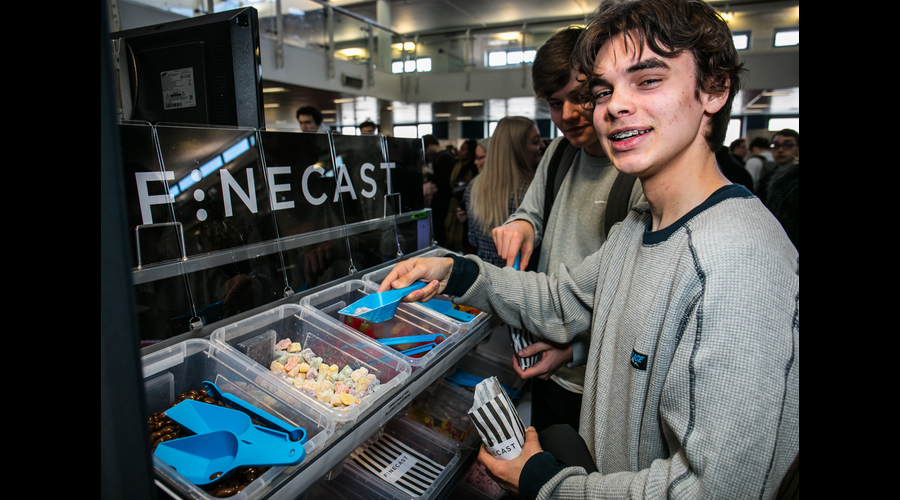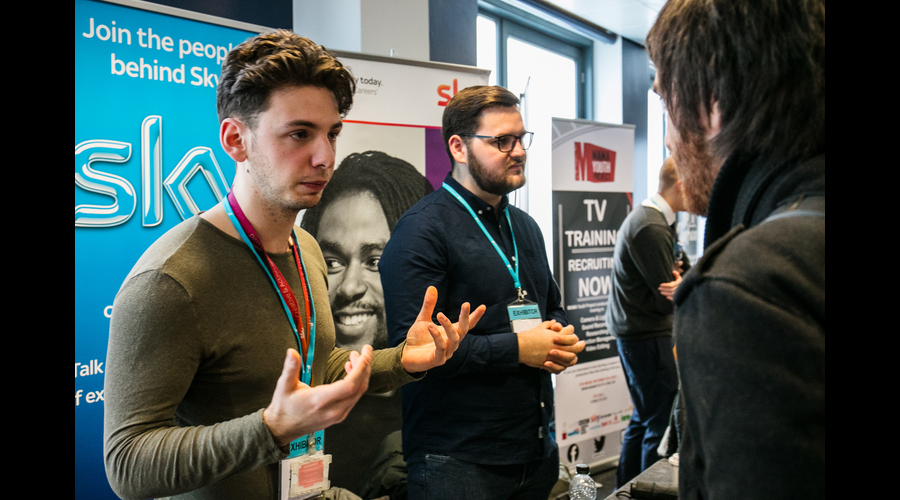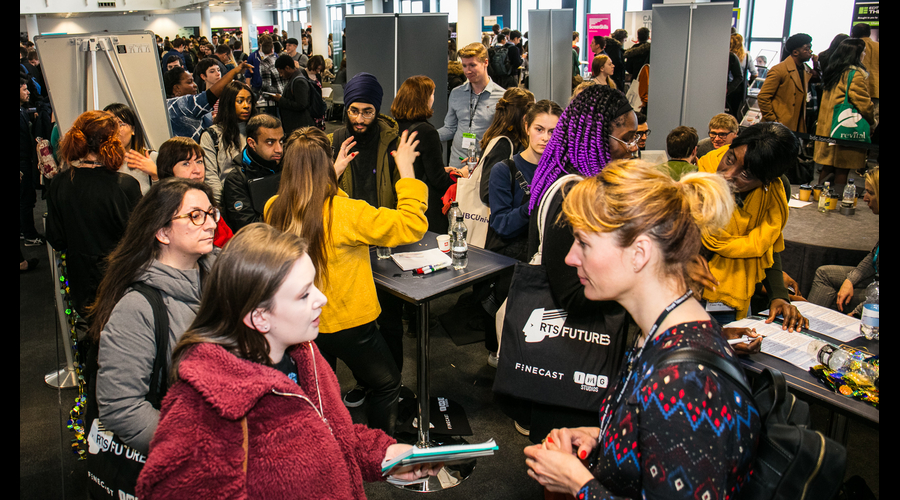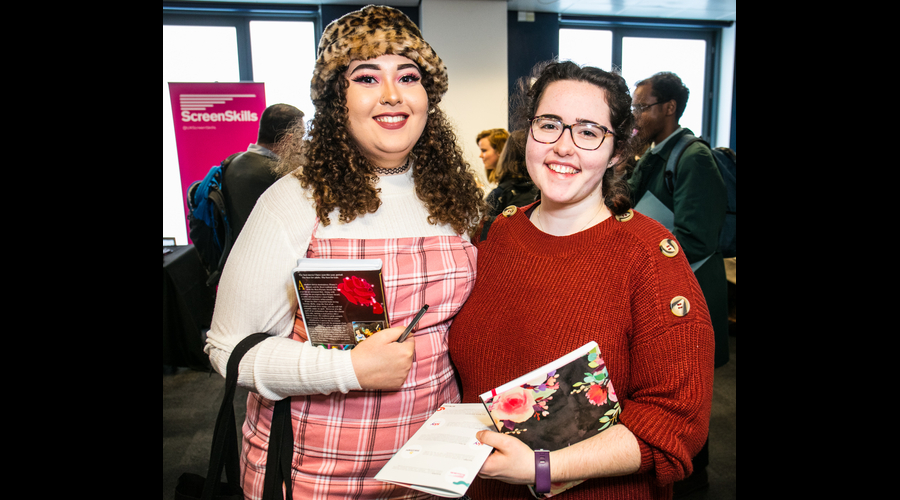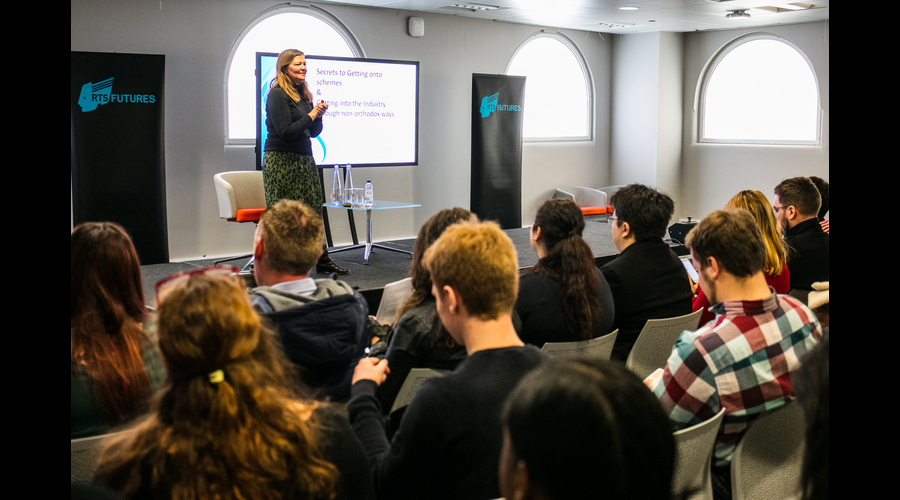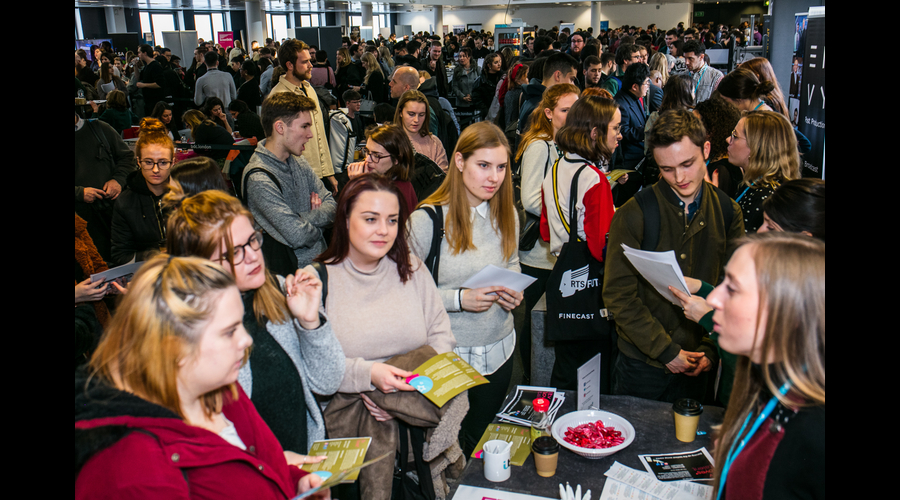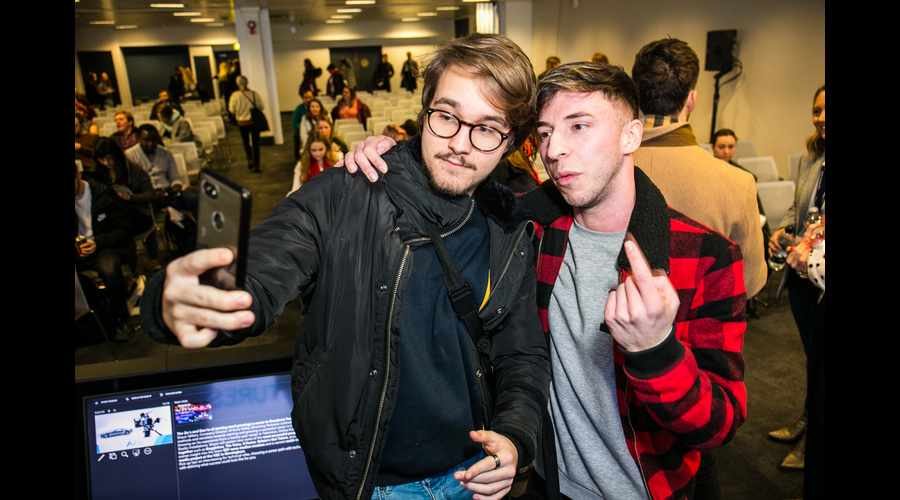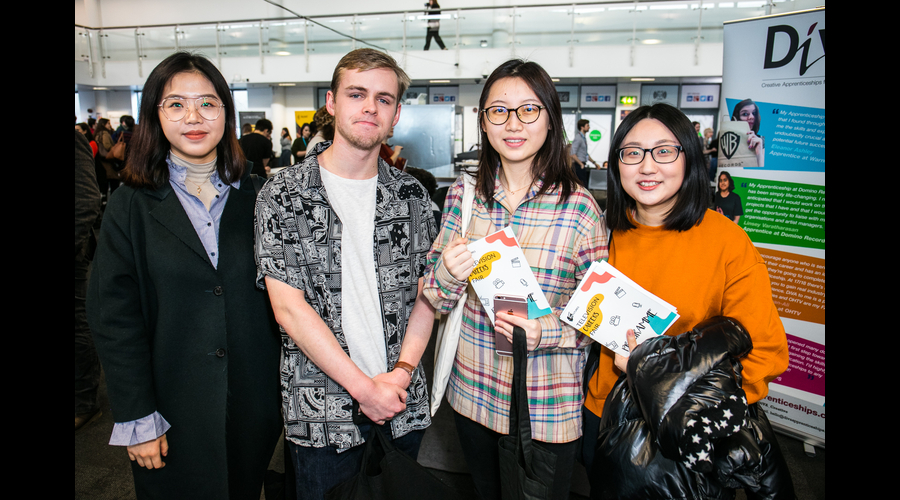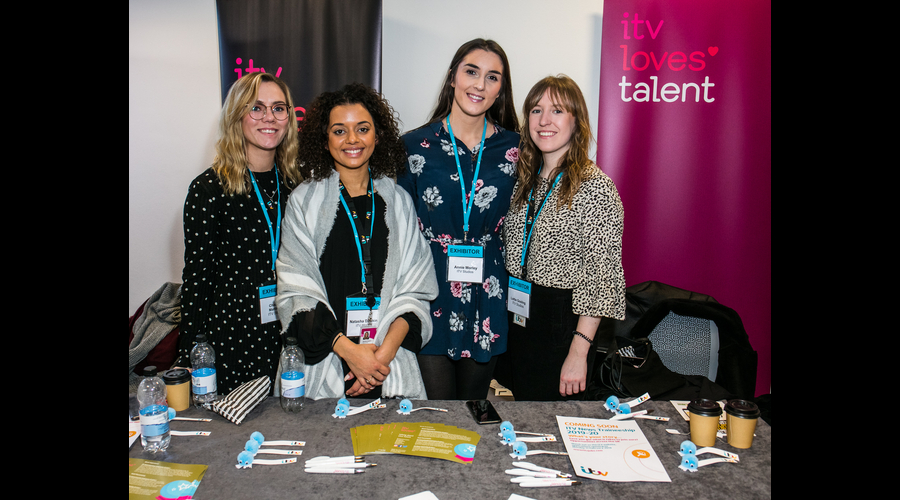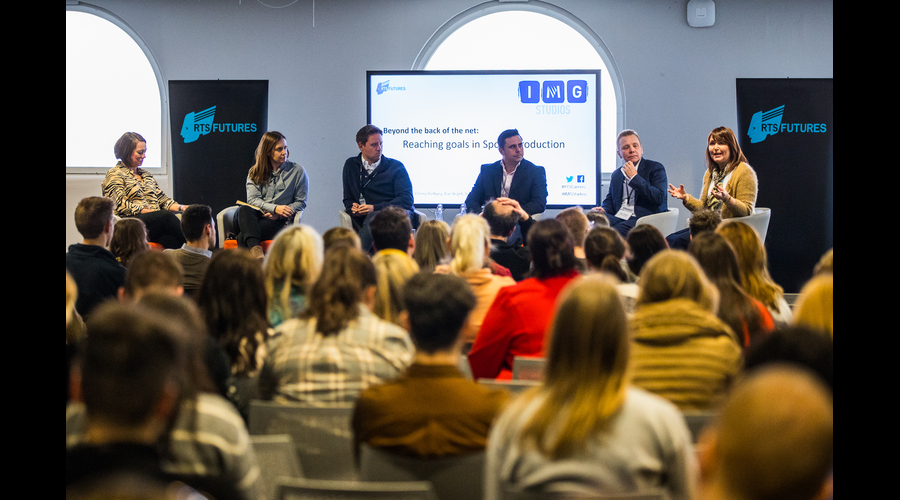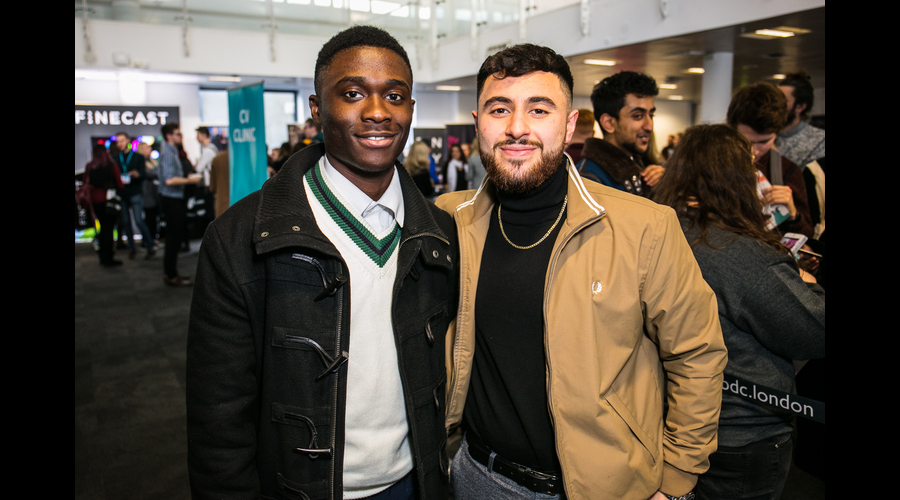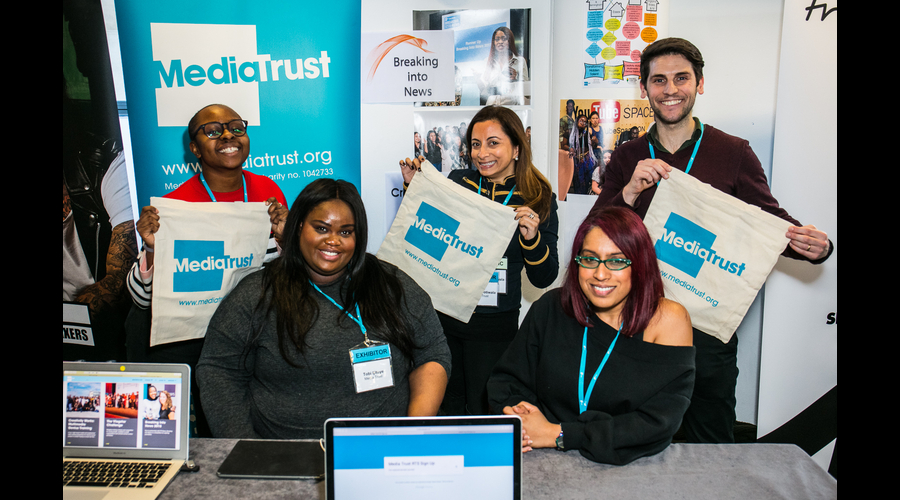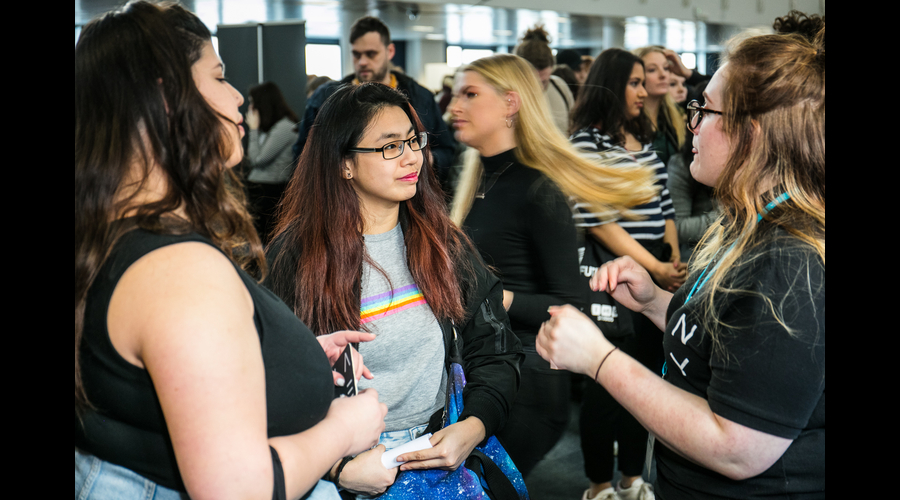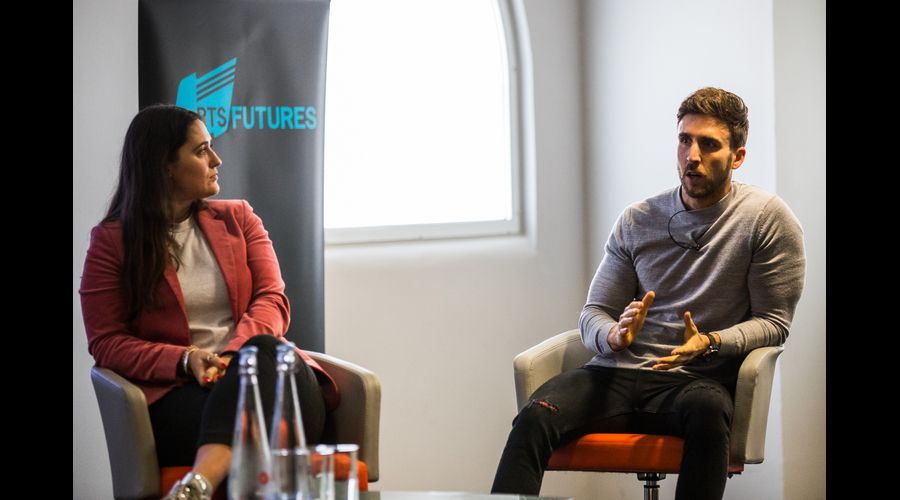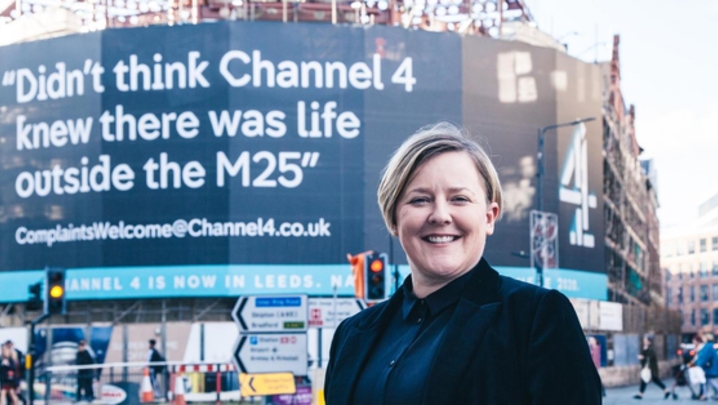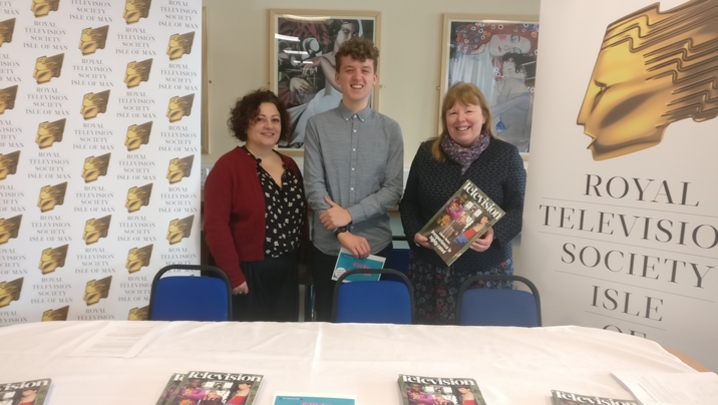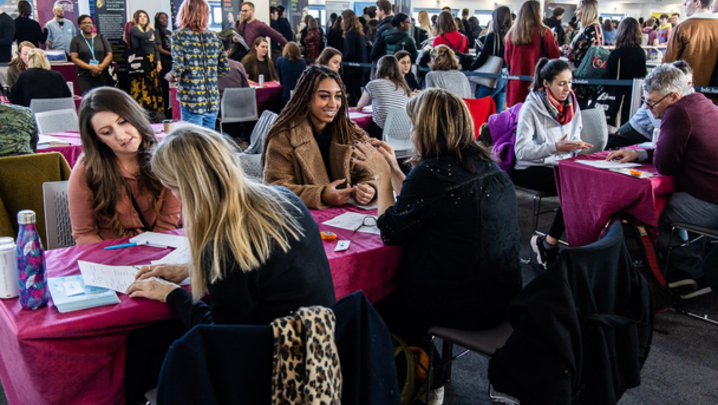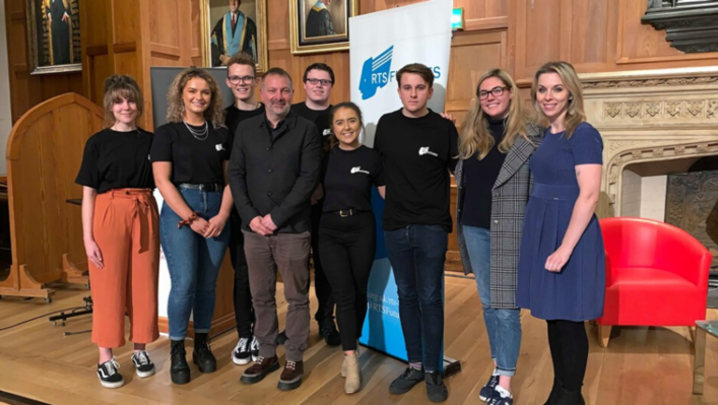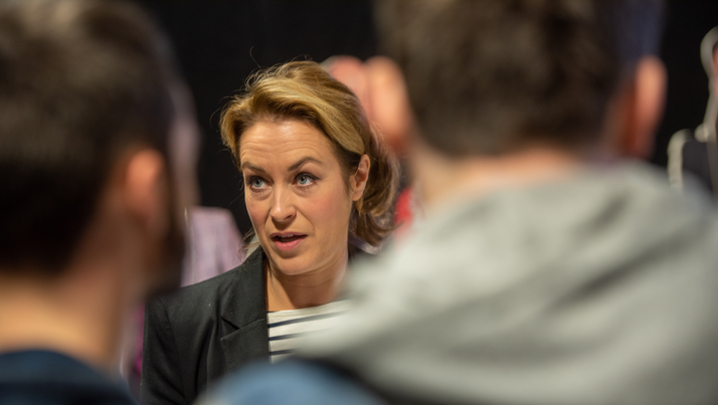The latest Television Careers Fair was RTS Futures’ most successful yet.
A record 1,400 tickets were sold for the late January event, which featured expert panels and presentations from some of television’s leading lights.
Forty broadcasters, production companies and industry bodies set up home in the exhibition hall, dispensing advice to a stream of people hoping to break into the industry.
IMG Studios – whose clients include the Premier League and World Cup Rugby –brought six execs to a session on sports production.
“There’s a wealth of jobs” in producing sport, said head of production services Danielle Neville. Teams of entry-level media co-ordinators and production assistants work on Premier League content for 180 countries worldwide. “As the league’s broadcasting arm,” explained senior producer Nia Wyn Thomas, “we are organising shoots every day at club training grounds.”
Production teams travel far and wide. IMG sends 100-plus outside broadcast specialists to cover golf tournaments worldwide and, in September, more than 700 will travel to Japan for the Rugby World Cup.
Sports production is changing, explained director of engineering Alan Bright, which is opening up new avenues of work. Live broadcasts remain hugely popular, but “the market is fragmenting and there’s a bigger appetite for different types of coverage”, he said. Demand for clips, bite-size highlights, podcasts and even niche content such as rugby refcam footage means more jobs are being created.
ThinkBigger MD Edi Smockum argued that entry-level schemes in television are “hot houses. They’re really good at providing training and contacts – and they keep you moving up.” Her company manages schemes for companies such as Channel 4.
“Give a reason for people to follow you – don’t aimlessly put out content.”
When looking for new talent, Smockum doesn’t “care if people do not have any professional experience – you wouldn’t expect them to if they’re applying for an entry-level job. There are lots of jobs that people do, which are really relevant to TV.” Working in a busy restaurant, she said, demonstrated stamina and the ability to deal with people.
Smockum advised her audience to watch as many programmes as possible, and not just high-end documentaries: “You can’t be snobbish about telly – you have to know why Love Island works.”
Jude Winstanley – MD of TV jobs website The Unit List – offered a warning about unpaid work experience: “You should be learning something that can lead to opportunities in television, not photocopying.”
Internships should “normally be for one to three months in a [TV] department” – and come with a salary. “You must be paid at least the minimum wage in this country,” she added.
Facebook and Instagram lead creator Lucy Skinner chaired a session on content creation for her platforms, welcoming a panel of youthful creators to the stage.
Stevie Knows works for News UK quiz show app Q Live, but in his spare time writes and performs comedy sketches about school life: “I don’t have fancy equipment. I shoot on my iPhone and edit using an app on the phone.”
London Fitness Guy – personal trainer James Stirling – films his workouts. He advised: “Give a reason for people to follow you – don’t aimlessly put out content.”
Earning money from their content, though, is difficult. Stevie Knows admitted: “I don’t get much money from the videos – I do it because I enjoy it.”
Stirling profits from working with brands that want to be associated with London Fitness Guy, but he is wary of the potential “backlash” if his content becomes overly commercial. “I turn down more ad opportunities than I take. I’d rather build a loyal audience than keep hammering them with ads,” he said.
Shaun Wilton – Director of Anna Valley, the new name for audio-visual business Shooting Partners – gave the inside track on a career in broadcast technology, advising his audience to gen up on 4k resolution, Dolby Atmos and high dynamic range.
Turning to the current state of TV, he said: “The gap between the higher and lower end is becoming greater and greater. If you want to work in daytime TV, it’s about how efficient you can make it.”
Working in big-budget Netflix-type drama, however, “is about how good it can be”.
The Television Careers Fair was held at the Business Design Centre, London on 30 January, and sponsored by IMG Studios and Finecast.
Download the slides from 'The Unit List presents: Get ready for your TV job' session here: News and Research, Podcasts & Events and Jobs & Training.
Download the slides from 'Secrets to getting onto schemes and getting into the industry through non-orthodox way' session here.


